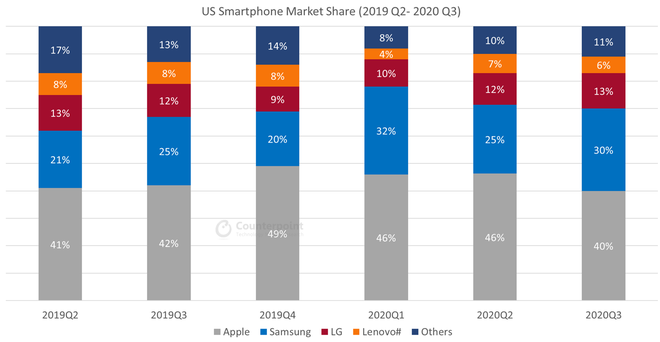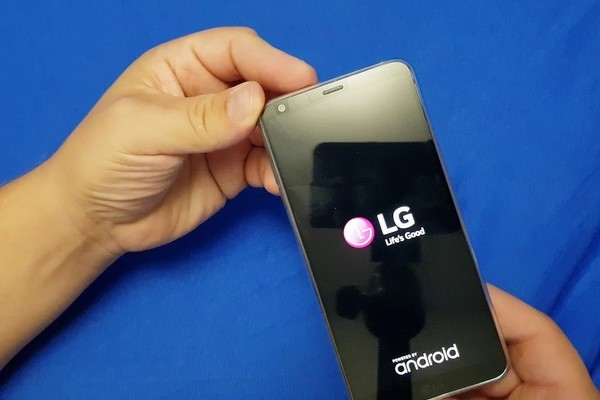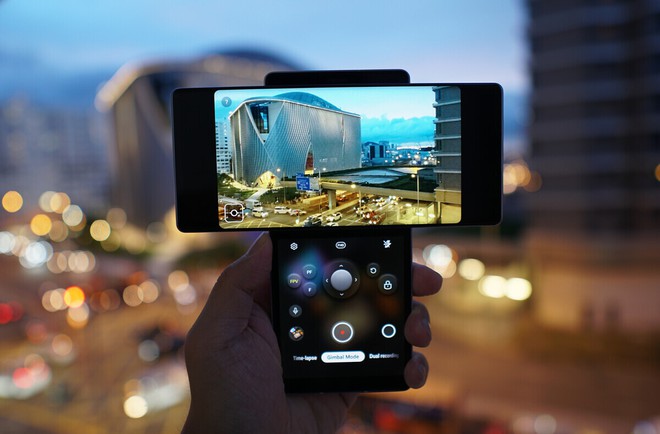Why does LG ‘go down without braking’ in the smartphone segment?
- Tram Ho
LG only sold 6.5 million phones in the third quarter of 2020, accounting for 2% of the global market share, according to Counterpoint. There are no figures for the fourth quarter and the whole of 2020, but it is not difficult to predict LG will continue to have a year of decline because of smartphones. This segment has caused the Korean electronics giant to lose 5 trillion Won ($ 4.5 billion) in the past five years while other divisions have continued to break sales records.
So, after all, the news that LG has decided to sell its smartphone business is going to happen sooner or later. But it became scooping news for the Vietnamese when the Korean newspaper announced that a large Vietnamese conglomerate emerged as the leading candidate to acquire LG’s smartphone segment in the US.

LG still has a market share in the US that still attracts potential buyers
According to experts, LG may only resell the smartphone business in the US, not the research and development (R&D) department and patents. But even if LG intends to sell the entire smartphone segment, it is not sure which big man dares to jump into this reckless gamble, because LG has lost all the way on the smartphone front for a long time.
In 2010, rival Samsung launched the first Galaxy S series to use Super AMOLED screens (OLED technology). Seven years later, LG introduced the G6 at Mobile World Congress, which still uses IPS (LCD technology) screens and discrete boards, while competitors have used systems on a chip (SoC).
Not only was it slower than its hardware rival, but LG phones also had many problems when it launched to the market. The collection of unexplained errors due to hardware or software occurring on LG phones is collectively known as “sudden death” error, which can be touch failure, bootloop error, screen error …
 The bootloop error caused LG to suffer heavily in terms of reputation |
In particular, the most serious error is the rampant bootloop on the G4, V10, V20, G5 and Nexus 5X phones (in cooperation with Google). Simply understand, bootloop is an error that turns the smartphone into a brick and rarely occurs with an Android phone that is not rooted (similar to jailbreak on an iPhone). This error led to a California lawsuit in 2017 that ended up with LG agreeing to pay $ 425 in cash or a $ 700 discount (on the next purchase) to victims in the US lawsuit. .
However, the bad reputation is still very far away. On foreign technology forums, LG is constantly complaining about slow firmware update, fast heating, and battery drain. When cheap competitors from China such as Xiaomi or Oppo hit the back of the neck, LG rushed to improve the battery, upgrade the screen, fast charging. However, the final problem is the distribution and marketing, and the availability of the supply chain is not synchronous, making LG phones take a long time to actually be available in the market after the launch date. . That is not to mention, the customer care stage of LG really has problems and users complain of bringing their children to the market.
Some of the recent highlights like Velvet 5G, V60 or Wing 5G are really worth the money, but buying it in the US is a feat, let alone buying in another country. This leads to the result that users do not dare to gamble with a laptop with a bad reputation but difficult to guarantee.
 Later phone models could not save the situation |
Although it is undeniable that LG’s early innovation with dual screen phones, scrollable screens, 18: 9 aspect ratio screen, wide angle camera (ultra-views), touch screen to open … But somehow, it still uses something weaker on its flagship lineup to compete with the competition. It can be an old chip, a low-frequency screen or not waterproof, not to mention the price is really expensive compared to competing products.
Consequently, LG has gone into the traces of smartphone giants in the past and the fact that it has to sell itself, shrink its scale and focus on R&D is an unavoidable step.
Source : Genk
